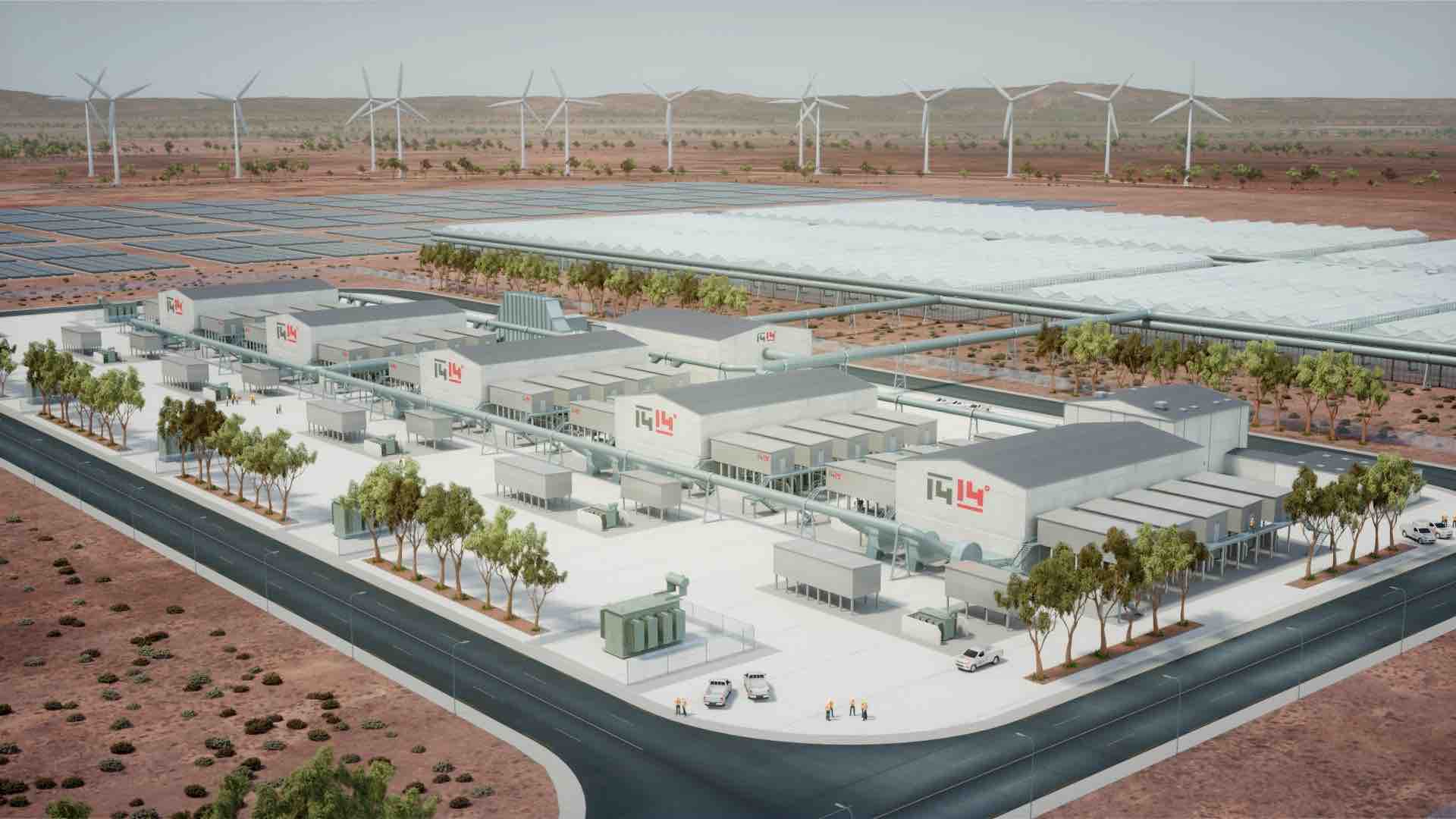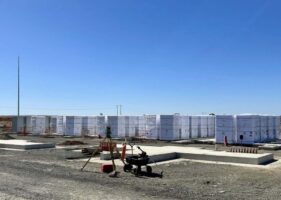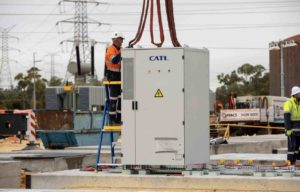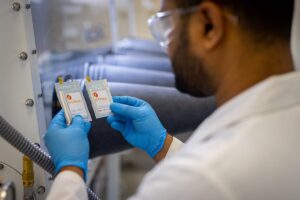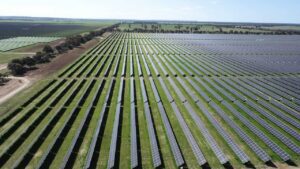Plans to combine a big battery with large-scale solar PV and solar thermal technology in South Australia have hit a bump in the road, after a key backer of the 1414 Degrees-led Aurora Energy Project withdrew its support for the energy hub.
1414 Degrees, which wants to use its silicon-based thermal energy storage technology to revive the Aurora project of failed US solar tower developer SolarReserve, said Ovida Infrastructure had decided to halt investment in Aurora, due to a change in strategic priorities.
1414 Degrees, or 14D, last December signed a Memorandum of Understanding with Ovida – a subsidiary of China- and Singapore-owned gas distribution company Jemena – to collaborate on the Port Augusta project, with a view to Ovida potentially taking a share in the energy hub.
But less than four months later, the Exclusivity MoU has been binned, leaving 14D with a $100,000 termination payment, any intellectual property generated since execution of the MoU, and the initial payment of $300,000.
Ovida is yet to release any formal statement explaining its decision, but 14D said in its own statement that it had been based on a general decision from Ovida parent company Jemena, “to focus on investing in its existing assets as opposed to the unregulated electricity market.”
The Aurora project near Port Augusta last November secured state development approval for a battery energy storage system (BESS) up to 140 MW/280 MWh, 70MW of solar PV and 150MW of concentrated solar power(CSP) as well as connection to the ElectraNet grid.
14D has also proposed to use the site to pilot its silicon-based thermal energy storage system, or TESS-GRID technology, which it says can deliver electricity firming services to similar scale as the solar power tower project (135MW of effective capacity and eight hours of storage).
That part of the project was boosted in mid-November 2021 by a $2.2 million grant from the federal government’s Modern Manufacturing Initiative (MMI), to accelerate the commercialisation of 14D’s SiBox thermal energy storage technology.
The focus of the 14D-Ovida MoU had, however, been on the development of the Aurora project’s more run-of-the-mill big battery – a focus that 14D said would continue, regardless, with a final investment decision for construction expected in late 2022.
“We thank Ovida for the contribution they have made over the past few months with us to further progress the Aurora project,” said 14D CEO Matt Squire in a company statement.
“The joint work has only reinforced our belief that Aurora is a world class renewable energy site that is at an advanced stage following several years of investment and approvals.
“We will be continuing with its development through our fully owned subsidiary Silicon Aurora and also engaging with other investors seeking large-scale and attractive returns from storage and renewable energy projects in South Australia,” Squire said.
14D suffered a setback on its TESS technology in mid-2020, when the results of a review of the technology found it falling short on key metrics.
The review, commissioned by the company’s own executive chairman Kevin Moriarty, found that 14D’s core technology, its long-duration thermal energy storage system (TESS), required further development work to be “commercially robust,” particularly in terms of efficiency and reliability.
The notably frank and transparent review update also found that earlier expectations for sales were “optimistic,” and that a fully developed electric charging TESS was not currently competitive with fossil fuel heating.
This led to a re-think on the big battery component of the Aurora project to improve the project’s business case, after modelling suggested that increasing the BESS size would deliver higher revenue streams from merchant generation and FCAS.
“The BESS will be positioned for further revenue upside from merchant and FCAS as thermal power stations continue to exit the market due to renewable penetration and low wholesale electricity prices,” a company statement said in April 2021.

